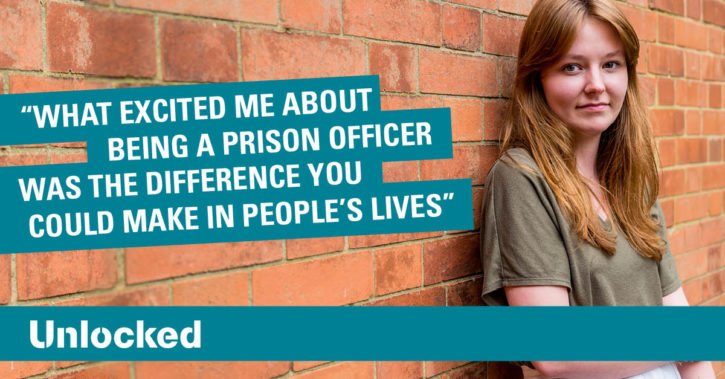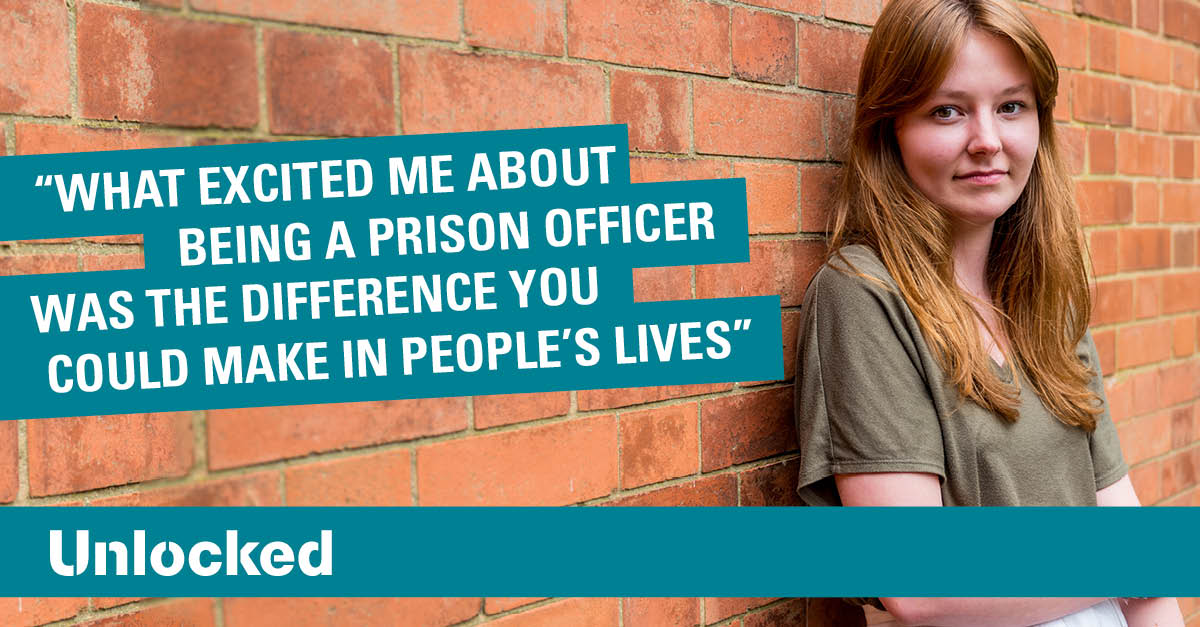Unlocked Graduates is a leadership programme in the model of Teach First and similar schemes that is working to get top graduates into prisons working as frontline prison officers for two years. Their first participants started at six prisons in the south east at the beginning of September. Here, founder and Chief Executive Natasha Porter (@NPorter83) explains their journey and Scarlett, one of their first participants gives her perspective after 100 days on the frontlines.
Improving the status of prison officers
It’s hard to believe only a year ago we were still finalising the battle to bring Unlocked into existence. The programme was a recommendation of the Coates Review of prison education. Both Dame Sally Coates and I were struck by the need to bring education into the heart of every prison, and recognised from our own professional experience that the best way to drive any initiative or culture shift is through those on the front line. What makes this particularly challenging in a prison setting is the low status of the prison officer job, and the invisibility of the service, particularly with those in positions of power across society. I went through the Teach First programme myself where we tried to get top graduates to consider a job that was not previously on their radar. A similar model for the prison service seemed like an obvious way to start.
It was a genuine experiment. Other graduate schemes for teaching and social work focus on careers that have always been seen as ‘graduate’ professions. And a similar programme for the police, which is historically a non-graduate and uniformed profession, found that the police has always had good standing on campus. This is not true for the job of prison officer.
We wanted the prison officer role to have a similar status to these other challenging public service positions. Not that everyone who does the job needs to be or should be a graduate but, especially given the complexity and importance of the job, it should be viewed as the kind of role that graduate should consider alongside consulting or teaching or accountancy.
Recruitment
We hit campuses in January last year – late in the usual university cycle but nevertheless, over 600 graduates submitted full applications in the eight week window for just 40 places and we were able to more than fill these. They joined an intense summer of training, where our participants not only covered all aspects of the usual prison officer training, but more, particularly on mental health, de-escalation strategies, and education. They also started the academic study for the Master’s they complete during the two year programme.
In their first months, our participants have done better than we could have hoped.
The challenges they are facing are not specific to our officers. The job of a prison officer is incredibly difficult. From right at the start, they have had to support prisoners with complex mental health problems who are self-harming.
Lots of people warned us that current officers would be very sceptical about a graduate scheme for prison officers, but in general our participants have been welcomed by their new colleagues. I think this probably has a lot to do with the fact that we are not a fast-track scheme – the job of a uniformed prison officer is a leadership role and should be seen as such, not just as a stepping stone.
That is not to say that our first participants have not seen things that need to be changed. They are angry about the challenges facing our prison service. And I want them to be.

Life-changers, not key-turners
I asked Scarlett, one of our pioneer graduates, to give her sense of the first few months so let me leave you with her observations:
When I told people I was going to be a Prison Officer after completing my Law degree the main reactions were confusion and apprehension. “Why are you doing that job?!” is a question I’ve been asked countless times now. By prisoners as well, actually. And I’m met with even more confusion when I answer “because I want to help people.”
I’ve been in uniform and on the landings for four months now and, like all of my Unlocked colleagues, I’ve realised that it is resilience you need more than anything. The environment in prison can be bleak and harrowing. Every day we face people who can’t read and write, people who’ve been in and out of prison for years, and throughout their whole lives, these people have been given up on. I took this job because I wanted to change this reality but remembering this motivation can feel impossible when faced with these challenges every day.
When it’s your first week and a prisoner shouts and throws a plate at you because you challenged them pushing in the queue, you have to react calmly – as you were taught in training. Sanction their behaviour but come back the next day and treat them fairly. You have to give the benefit of the doubt and give them chances to rebuild the professional relationship, to help them turn their behaviour around. When you’ve then been helping them and thought you had built an effective relationship and they square up to you because you said no to something, it can be hard but we still can’t stop helping.
Prisoners are used to aggression and pushing everyone away so you have to learn to challenge this, see past the behaviour and keep trying anyway. When some prisoners grunt at you or ask if you’re investigating them when you enquire about their story, you can’t let it stop asking the next person you meet. Because one day that conversation will be the first time that individual has ever opened up. That moment could be the start of a journey where you can support them and point them in the direction of resources that can help. When prisoners give you fake names and try to test you, you keep on asking their first name. Because one day they’ll instead say: “Miss, thank you so much for actually asking my first name. That was really nice.” These are the glimpses of hope, the small wins, which prisoners look back on as life-altering moments.
You come back fighting for them every single time, every single day, because no one else will. And that is how Prison Officers change lives.
Rehabilitation regularly starts with an Officer believing in a prisoner; every person who had spent time in prison told us this during training. As much as locking doors is a huge part of what we do, Prison Officers are life-changers, not key-turners.
You can see Scarlett talking more about why she took up the Unlocked Graduates challenge here:
https://www.youtube.com/watch?v=ZpMrrL2AHOg
Interested? Unlocked Graduates is recruiting for its 2018 cohort at the moment. You can apply on their website. They are also recruiting at the moment – if you are a prison officer interested in training and mentoring you can check out the opportunities here.



